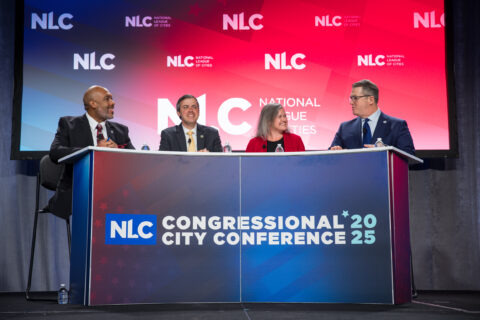The National League of Cities (NLC) is dedicated to fostering equitable investment across all communities. By advocating for policies that ensure fair distribution of resources, NLC provides assistance to cities to help them implement equitable practices, conduct research to highlight disparities and promote solutions.
Capital Investments in Philadelphia
A recently published Pew Charitable Trusts’ research report titled “Capital Budgeting in Philadelphia – Examining the City’s Investments Through an Equity Lens” provided an analysis of capital investments in Philadelphia from fiscal years 2011 to 2022. This analysis offers valuable insights into how resources have been distributed among various census tracts, highlighting significant disparities and areas for improvement.
Over the period studied, the per capita capital investment was $802. However, this figure masks a large variance in per capita investment across different census tracts. Census tracts with higher median household incomes and a larger share of non-Hispanic white residents tended to receive higher per capita capital investment. In contrast, tracts with higher shares of non-Hispanic Black residents and lower median household incomes saw lower shares of investment. However, when Philadelphia explicitly included equity among its investment criteria, like with its Rebuild Philadelphia program, the disparity diminished. This difference underscores the need for a more equitable approach to capital budgeting.
Indicators of Potential Disadvantage
The report also implemented the “indicators of potential disadvantage” developed by the Delaware Valley Regional Planning Commission. These indicators include factors such as race, ethnicity, income, age, gender, disability status and the share of an area’s foreign-born population. The findings revealed stark disparities: census tracts with the lowest potential disadvantage had over 2.5 times more capital investment per capita ($1,235) than those with the highest potential disadvantage ($454).
Since 2020, Philadelphia has committed to embedding racial equity in all aspects of its governance, including capital programming and budgeting. Despite these efforts, the data indicates that significant disparities remain. In all three types of capital assets by area of influence (local, multi-neighborhood and citywide), groups with the lowest potential disadvantage score had the highest per-capita capital spending, while groups with the highest potential disadvantage score had the lowest per-capita capital spending.
NLC Resources
This report serves as a crucial reminder of the ongoing need to address inequities in capital investment, and Philadelphia adapted a methodology first used in Baltimore for this analysis. By examining the distribution of resources through an equity lens, cities can better understand the impact of their budgeting decisions and work towards more equitable outcomes for all residents. The National League of Cities offers several resources to support cities in this endeavor. For instance, the Building Equitable Communities initiative explores how community land trusts and worker ownership can create lasting affordability and quality jobs. Additionally, the Advancing Equitable Economic Mobility in Cities article provides insights into how cities can align programs and redesign systems to support residents in building long-term wealth. The Racial Equity Resources page offers a comprehensive guide for cities to advance racial equity in their policies and practices.
NLC encourages member cities to explore these resources and consider how they can implement more equitable capital budgeting practices in their own communities. By leveraging these tools and insights, cities can make significant strides towards achieving equity in capital investment and ensuring that all residents benefit from their investments.










